Royal Wedding: What do Prince Harry and Meghan Markle really think about LGBT rights?
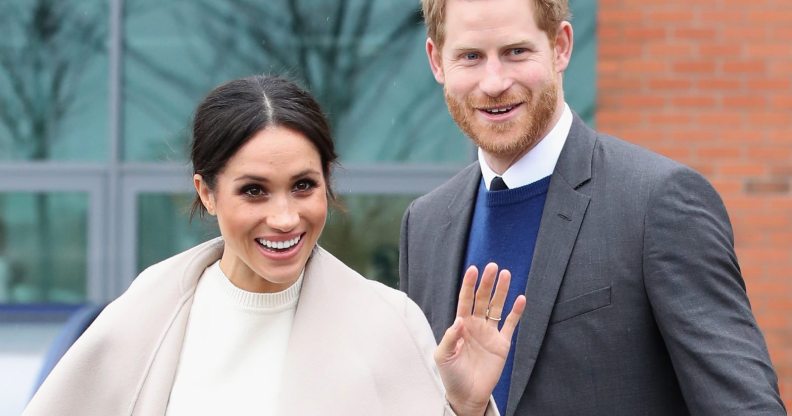
(Chris Jackson/Pool/Getty)
Prince Harry will marry Meghan Markle on May 19, in a royal wedding which hundreds of millions – if not billions – expected to watch.
And though this is a prime example of a privileged straight wedding, the influence which the British royal and American actress and humanitarian activist have is prodigious.
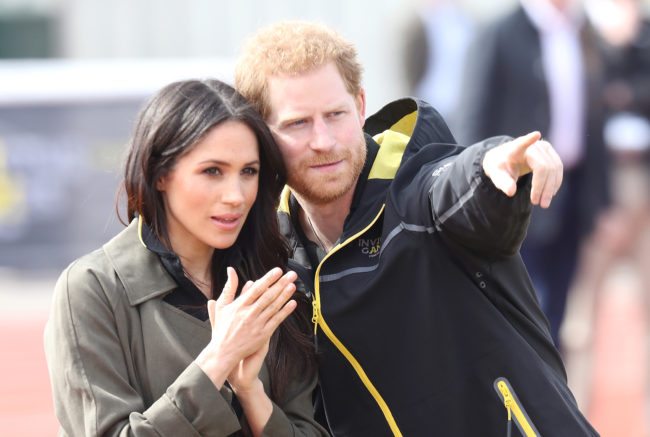
(Chris Jackson/Getty)
It is therefore worth considering what positions the soon-to-be-newlyweds have on LGBT issues, and whether they might even help create positive changes.
Prince Harry, the youngest of Prince Charles’ children and sixth in line for the throne, has come a long way since his days of being branded a party boy.
The prince is said to have joked that he was “a gay icon” in 2008 while taking part in military training in 2008 – but with every action he takes to promote LGBT issues, he makes this moniker sound less fanciful.
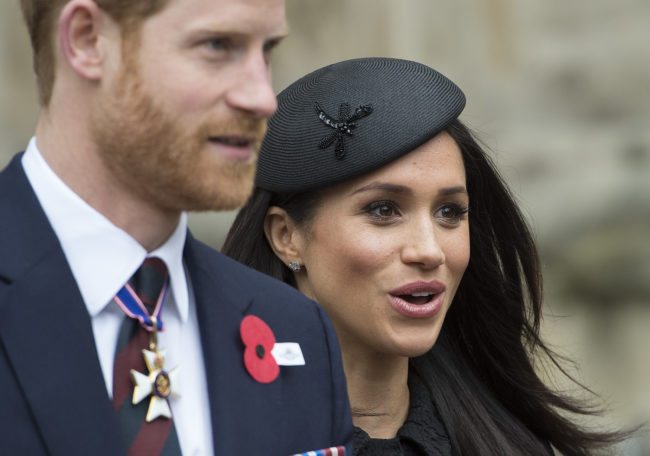
(Eddie Mulholland/Getty)
In April, he attended the Commonwealth Heads of Government Meeting, telling young LGBT activists that change was in the air.
The new Commonwealth youth ambassador reportedly told the advocates that it was “amazing, because five to 10 years ago, we wouldn’t be having these conversations, and you guys would’ve been going against the tide.
“And now, here you are – the tide is changing, and this is a sign of it.”
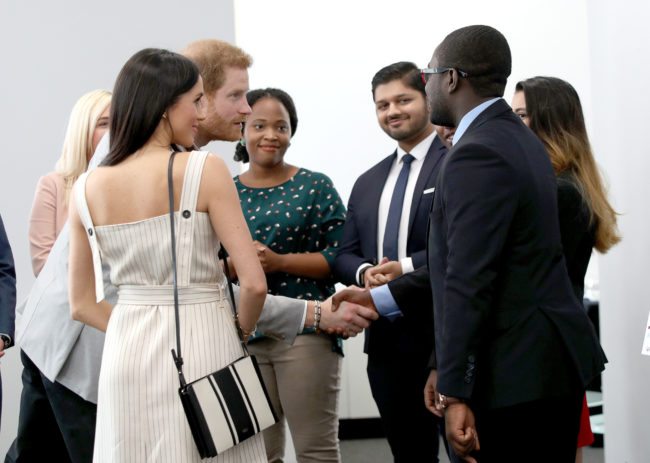
(Yui Mok/Getty)
The prince also told them that it was “time for us all to acknowledge that your inclusion and protecting everyone’s rights – including LGBTI rights – benefits everyone.”
In a world in which a billion people still live under anti-gay laws in the Commonwealth, this was important.
If he continues to fight for progress, he could be a priceless asset in the continuous push for equality in the 36 Commonwealth countries which continue to criminalise same-sex acts, primarily under laws imposed during the British Colonial era.
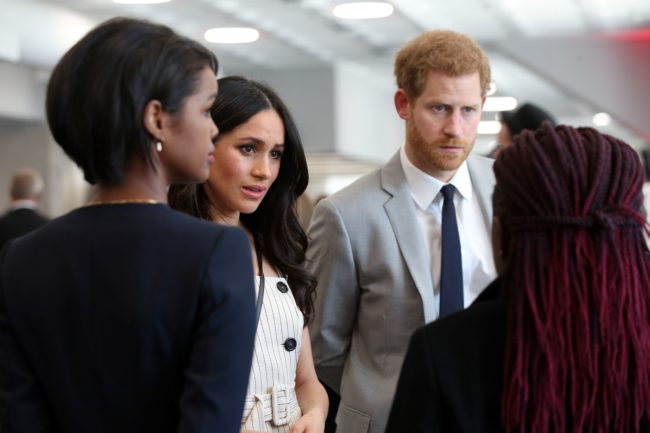
(YUI MOK/AFP/Getty)
And particularly over the past year, the 33-year-old royal has taken steps to cement the impression that he will value LGBT issues.
His first official engagement alongside Markle was a visit to HIV charity Terrence Higgins Trust, where he met with people living with HIV.
And in February, the prince met with players from one of the UK’s biggest gay rugby clubs.
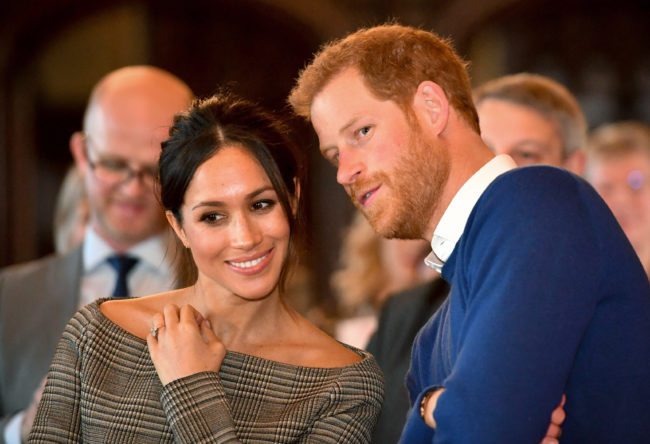
(Ben Birchall/Getty)
As part of his role as Patron of England Rugby, the royal met Manchester Village Spartans players at Twickenham Stadium, as part of the Try For Change campaign.
In October, he appeared at the Attitude Awards to collect a posthumous honour on behalf of his mother, Princess Diana.
The prince has followed in his mother’s footsteps by campaigning on HIV/AIDS issues, and has also praised the “amazing” work of a transgender children’s charity.
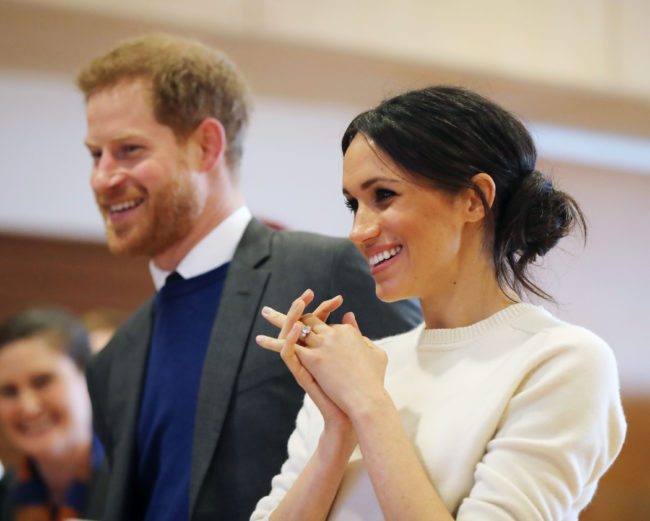
(Niall Carson/Getty)
He has adopted HIV as one of his key campaigning issues, visiting a number of HIV clinics, attending the International AIDS Conference in South Africa and speaking about his late mother’s work on the issue.
In 2016, the Prince made headlines by taking an HIV test on Facebook Live, as part of an appeal for more people to get tested.
And his passion on the subject was evident when he and Markle’s encouragement for wedding well-wishers to donate to an HIV charity in their name rather than send presents.
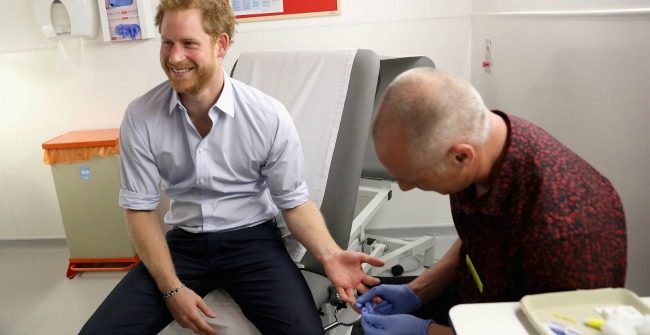
The charity selected was CHIVA, the Children’s HIV Association, which “supports children growing up with HIV and their families across the UK and Ireland.”
Markle, 36, has long been a voice for humanitarian issues, especially when it comes to gender equality.
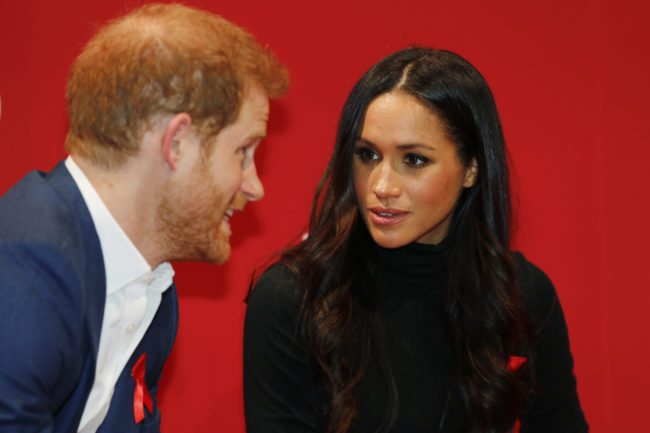
(Adrian Dennis/Getty)
She spoke on the issue at UN Women in 2015, and has been campaigning on the issue ever since she was 11 and appeared on Nickelodeon to protest a sexist advert.
Speaking alongside the prince at the Commonwealth Heads of Government Meeting, she told the young activists: “This is a basic human rights issue, not one about sexuality.”
From the looks of it, the royal couple will continue to proudly promote LGBT issues and speak out whenever possible.

